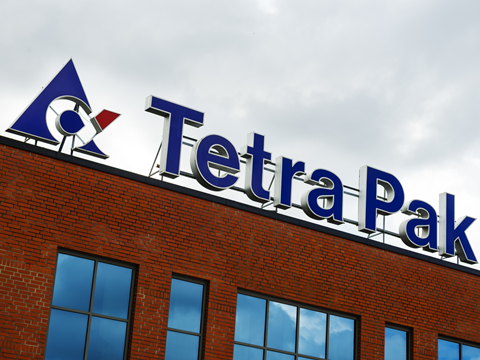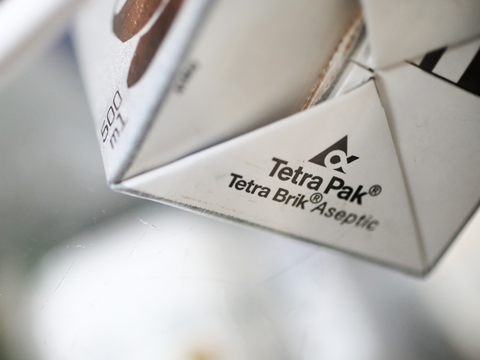
Tetra Pak has released its 2024 (FY24) Sustainability Report, highlighting a 25% reduction in value chain greenhouse gas (GHG) emissions since 2019 and a 54% emissions reduction and 94% renewable energy consumption in its own operations.
The company states the progress illustrated in the report puts it on track to achieve its 2030 ambition of reducing GHG emissions across its value chain by 46% (Scopes 1, 2 and 3), compared to the 2019 base year. Tetra Pak adds it is working collaboratively with suppliers, customers and other stakeholders to achieve net-zero GHG emissions across the value chain (Scopes 1, 2 and 3) by 2050 compared to the 2019 baseline.
A significant contributor to reducing GHG emissions across its value chain was the company’s whole-factory optimisation technology and packaging solutions with lower carbon footprints. Tetra Pak says that in 2024, GHG emissions from delivered ambient dairy lines decreased by 13% compared to 2023, and by 42% from the 2019 baseline.

The Tetra Pak Tubular Heat Exchanger with patent-pending Q corrugation was introduced this year, said to reduce the pressure drop by 40%, also allowing customers to cut the electricity consumption of the heat exchanger pump (used during food and beverage production for processes such as sterilisation and pasteurisation) by up to 40% compared to the previous market-leading model. Apparently, this resulted in lower energy costs and a reduced carbon footprint.
Other achievements shared in the company’s report include helping food production factories achieve up to a 40% reduction in energy consumption and a 60% improvement in quality consistency through Tetra Pak’s manufacturing solutions.
In April, the company trialled a paper-based cap for carton packages of Aneto’s vegetable broth, creating a pack that contains 73% paper by weight and 87% renewable content, including the plant-based polymers in the coatings and opening neck. Market testing is expected to reveal whether the cap can resist moisture, temperature shifts, and stress in transit while preserving the broth’s quality.
The following month Tetra Pak, Krones, Alfa Laval, and SPX FLOW formed the Food Manufacturing Technologies Europe (FMTE) coalition, intended to lower the sector’s environmental impact, amplify its voice in policymaking and bolster its resilience and competitiveness. It is set to represent companies of all sizes from SMEs to global leaders, and companies across the industry are invited to join.
If you liked this story, you might also enjoy:
The ultimate guide to the Packaging and Packaging Waste Regulation in 2025
How are the top brands progressing on packaging sustainability?
Everything you need to know about global packaging sustainability regulation in 2025
The key to increasing the use of reusable packaging in supermarkets














No comments yet